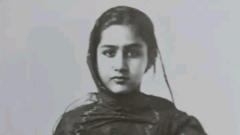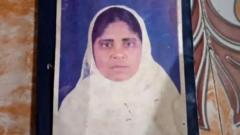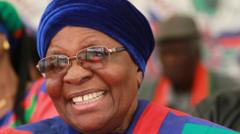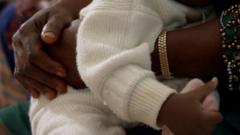Born in 1913, Abida Sultaan shunned traditional female roles in favor of leadership and adventure, becoming a prominent figure in India's history. Her experiences reflect the socio-political challenges faced by Muslim women and the repercussions of partition, leading her to a new life in Pakistan.
The Unconventional Life of Abida Sultaan: Bhopal's Rebel Princess

The Unconventional Life of Abida Sultaan: Bhopal's Rebel Princess
Abida Sultaan, the daughter of the last Nawab of Bhopal, defied societal norms and embraced a life of independence, sports, and political engagement during a tumultuous era in India.
Abida Sultaan stands out as an emblem of defiance against conventional norms for women in early 20th-century India. The eldest daughter of Bhopal's last Nawab, Hamidullah Khan, Abida was anything but a typical princess. She was a skilled marksman, an accomplished polo player, and an airplane pilot, all while driving a Rolls-Royce from the tender age of nine. Born in 1913 into a lineage of formidable 'begums' who ruled Bhopal, she continued the tradition of challenging women's stereotypes, particularly within her Muslim background.
Abida rebelled against traditional expectations at a young age, refusing to adhere to purdah, a practice that involves women wearing concealing clothing and segregating themselves from men. She was only 15 when she became heir to the throne, competently managing her father's cabinet for over a decade. Under the stern guidance of her grandmother, Sultan Jehan, she was prepared for leadership from an early age. In her autobiography, *Memoirs of a Rebel Princess*, she recounted her demanding upbringing, which encompassed discipline, academics, sports, and daily chores. "We girls were not allowed to feel any inferiority," she insisted, highlighting the freedom she had to pursue activities typically reserved for boys.
Despite her status, Abida's marriage at the age of 12 to Sarwar Ali Khan proved turbulent and short-lived. An amusing yet revealing account of her nikah, or wedding, showcased her naivety and discomfort with marital expectations that stemmed from her upbringing. The matrimonial challenges culminated in a significant struggle with intimacy, which led to her marital breakdown. Notably, historian Siobhan Lambert-Hurley emphasized how Abida's candid reflections challenge prevailing stereotypes about Muslim women’s reticence in discussing sexual matters.
After her marriage dissolved, Abida engaged in a fierce custody battle over her son, Shahryar Mohammad Khan. In an audacious display of bravery, she confronted her husband in his bedroom with a revolver, demanding resolution, which concluded the protracted dispute. Motherhood coupled with her royal responsibilities kept her on a pivotal career trajectory amid India's social upheaval.
Abida was an active participant in the political landscape during the lead-up to India's independence, meeting influential figures like Mahatma Gandhi and Jawaharlal Nehru while observing the souring relations between Hindus and Muslims. The partition in 1947 plunged communities into violence, fostering fear and animosity, which Abida later documented, prompting her migration to Pakistan in 1950.
In Pakistan, she continued her advocacy for women's rights and democracy throughout her political career until her passing in Karachi in 2002. Despite the Indian government's appointment of her sister as heir to the throne after her migration, Abida's legacy remains resonant in Bhopal. Journalist Shams Ur Rehman Alavi recalls that while the rise of religious politics may obscure her contributions, the name 'bia huzoor' is unlikely to fade from memory anytime soon. Abida Sultaan’s life exemplified the strength and fortitude of a woman navigating the complexities of her identity against the backdrop of a changing nation.






















